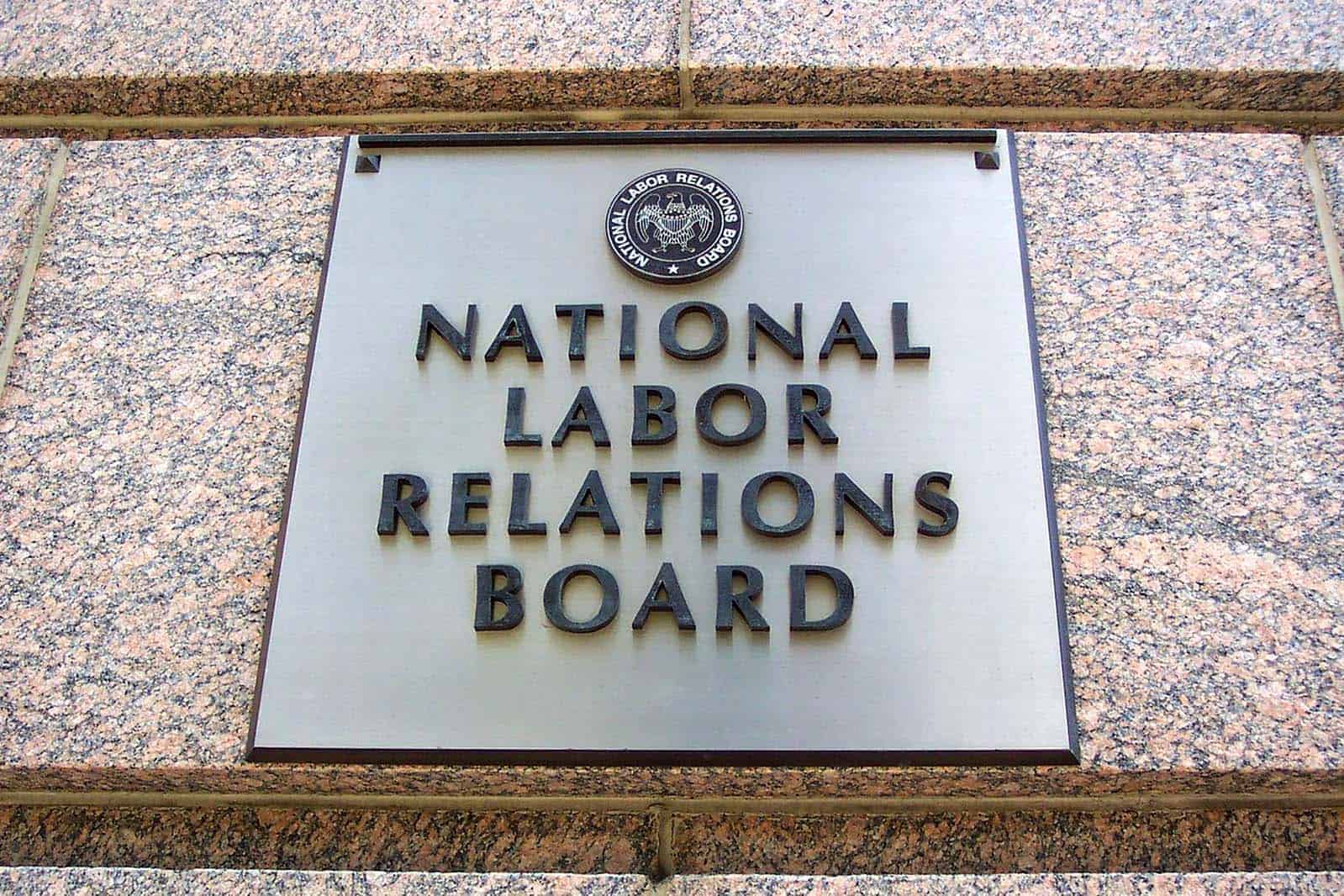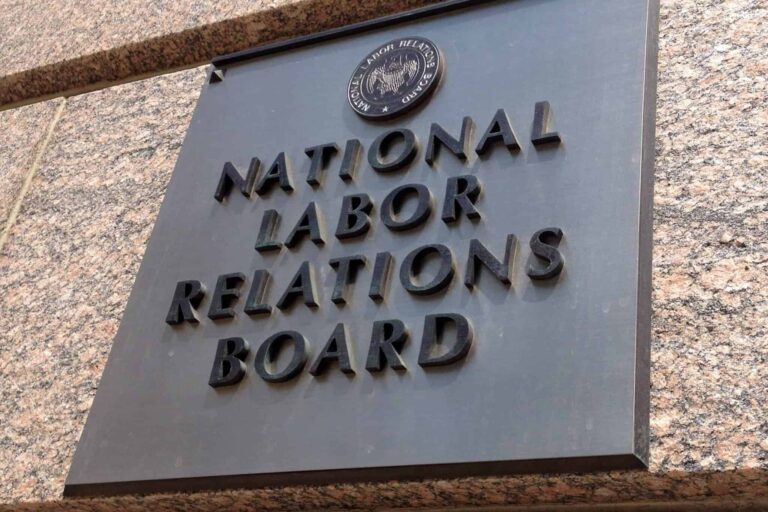
Jason Vazquez is a staff attorney at the International Brotherhood of Teamsters. He graduated from Harvard Law School in 2023. His writing on this blog reflects his personal views and should not be attributed to the IBT.
With a view to facilitating the collective bargaining process, the National Labor Relations Board issued two complementary decisions on August 26, 2023, the capstone of what amounted to an energetic and exciting week at the agency. The Board’s rulings in the cases, Wendt Corporation and Tecnocap LLC, have the potential to supply a potent supplement to its recent Cemex decision. Whereas the latter was calculated to make it easier for unions to secure a bargaining order, Wendt and Tecnocap are aimed at inhibiting employers from frustrating the negotiating process once the statutory duty to bargain attaches. Together, Wendt and Tecnocap entirely displace Raytheon Network Centric Systems, a decision which, rendered by the Trump Board in 2017, afforded employers sweeping authority to unilaterally modify working conditions in their facilities even when they were subject to a duty to bargain for a new CBA. Under Wendt and Tecnocap, however, the NLRB now permits an employer to unilaterally change terms of employment while subject to a statutory duty to bargain only where such changes are consistent with a past practice and are, in effect, automatic. Moreover, pursuant to the updated doctrine, an employer may no longer predicate unilateral changes on a management-rights clause once the agreement embodying that clause expires.
I. Wendt Corporation
In the first case, Wendt Corporation, the firm involved had furloughed ten employees in the midst of ongoing negotiations for a first labor contract. The NLRB, in a 2-1 ruling, found the layoffs unlawful. In doing so, the agency dismantled the core of its Raytheon decision.
In Raytheon, the Trump Board enunciated the “kind-and-degree” test to govern unilateral management actions during bargaining. It authorized an employer to impose unilateral changes if they were “similar in kind and degree with what the employer did in the past,” which included those involving a substantial exercise of managerial discretion. The Wendt Board declared this test contrary to the Act, arguing that it contravened the statutory interpretation set forth by the Supreme Court in NLRB v. Katz, which remains the leading precedent on the issue. In Katz, the Court reasoned that imposing a unilateral change to working conditions during bargaining amounts to “a circumvention of the duty to negotiate,” and, therefore, “must of necessity obstruct bargaining.” Accordingly, the Court established the general rule, which has persisted for decades, that such unilateral changes “will rarely be justified.” Although the Justices recognized a narrow exception for changes consistent with past practice, they subsequently removed from its protective ambit those that, even if harmonious with past practice, are “informed by a large measure of discretion,” rather than “automatic.” In applying and elaborating the Katz doctrine, the NLRB and the lower courts crystallized the principle that a unilateral change to employment conditions is privileged only where the employer has demonstrated that it is consistent with a longstanding past practice and not informed by a large measure of discretion. In Raytheon, however, the Trump Board upended this consensus, extending the past-practice exception to embrace even unilateral changes entailing a substantial exercise of managerial discretion.
In Wendt, the NLRB repudiated Raytheon’s expansive construction of the past-practice exception. Raytheon misrepresented the holding of Katz, the majority asserted, insofar as it read that decision to sanction unilateral conduct involving substantial employer discretion. In the Wendt majority’s view, the “unambiguous language” of the Katz opinion forecloses such a holding. Moreover, in addition to transgressing binding judicial precedent, the Board insisted that Raytheon warranted reversal as a matter of administrative policy, given that it inhibited the overarching purpose animating the NLRA, namely, to encourage collective bargaining. Discretionary unilateral changes, the Board reasoned, undermine and destabilize the bargaining process.
In view of such considerations, the Wendt Board expressly overruled Raytheon, restoring the doctrinal rule that unilateral changes during bargaining are permitted “only when the employer has demonstrated a regular and consistent past practice that is not informed by a large measure of discretion.” In order to qualify as sufficiently nondiscretionary, in turn, the conduct must, in the Board’s formulation, be “fixed by an established formula containing variables beyond the employer’s immediate influence … based on non-discretionary standards and guidelines.” The Wendt Board also reaffirmed the principle that an employer’s past practice of implementing unilateral changes to working conditions prior to certification of a union in the facility cannot privilege it to continue instituting such changes after the employees have collectively selected union representation.
II. Tecnocap LLC
In Tecnocap LLC, the Board overruled a different dimension of the Raytheon decision, one that was not at issue in Wendt. During bargaining for a new CBA, Tecnocap had unilaterally altered its employees’ work schedules to impose mandatory sixty-hour weeks. In contrast to Wendt, however, Tecnocap and the union had previously executed a CBA that contained a so-called “management-rights clause” affording the company the discretionary authority to adjust work schedules. On that basis, the ALJ deemed the employer’s unilateral schedule modification permissible, for it had been authorized by the expired management-rights clause. The Board reversed that portion of the ALJ’s decision.
First, the Tecnocap Board articulated the broad principle that “a management-rights clause does not survive the expiration of the contract.” Thus, it follows that an employer is disabled from invoking a past practice developed pursuant to such a clause to privilege its unilateral changes after the agreement embodying the clause expires. In Raytheon, the Trump Board had maintained that so long as the actions do not materially vary in kind or degree from those that had been customary in the past, an employer remains entitled to continue engaging in unilateral conduct authorized by, or consistent with a past practice stemming from, an expired management-rights clause. The Tecnocap Board identified several aspects of this doctrinal arrangement that, as a matter of policy, were damaging to the collective bargaining process. First, it precluded unions from meaningfully revisiting a term in subsequent bargaining. Similarly, it compelled them to negotiate to regain terms lost to post-expiration unilateral changes. Moreover, the doctrine disincentivized unions from contractually granting employers any right to impose unilateral changes during the term of the contract in the first place, and it undermined the union’s stature in the workplace. Based on these reasons, the Tecnocap Board held that while bargaining for a new contract, an employer may not invoke a clause in the expired one—or a past practice resting on such a clause—to sustain its unilateral modification to employment terms.
* * *
All told, then, as the law presently stands in the wake of Wendt and Tecnocap, an employer is entitled to unilaterally modify working conditions while subject to a statutory duty to bargain only if the changes it imposes are consistent with a regular and consistent past practice (discounting any actions before the union was certified) and are effectively automatic. In addition, unilateral changes ostensibly sanctioned by an expired management-rights clause—or predicated on a past practice stemming from such a clause—are no longer lawful.










Daily News & Commentary
Start your day with our roundup of the latest labor developments. See all
May 1
Tenth Circuit upholds DOL Rule; fired Google employees file NLRB complaint; Trader Joe's union vote undecided
April 30
EEOC finalizes guidance on workplace harassment, hotel workers prepare for May Day rallies, and the Fight for $15 campaign rebrands as Fight for a Union.
April 29
The International Alliance of Theatrical Stage Employees enters the final stages of negotiations for its basic agreement; the Supreme Court appears likely to side with Starbucks in 10(j) injunctions case
April 28
UAW wins big in last-minute Daimler deal; DOL rule bolsters farmworker labor protections.
April 26
Starbucks and Workers United resume bargaining talks; Amazon is ordered to disclose records; Alabamians support UAW’s unionization efforts.
April 25
FTC bans noncompete agreements; DOL increases overtime pay eligibility; and Labor Caucus urges JetBlue remain neutral to unionization efforts.